#크아아아아아아아아아아아
Explore tagged Tumblr posts
Text
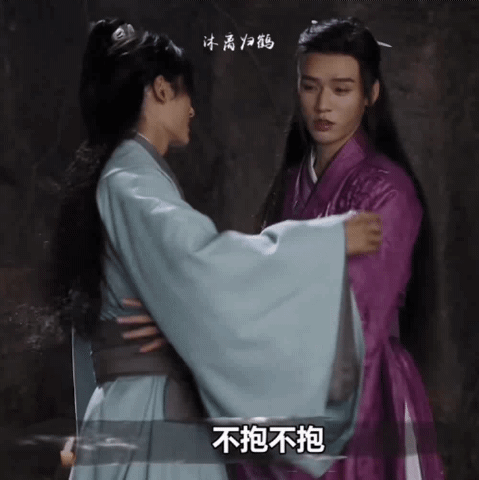





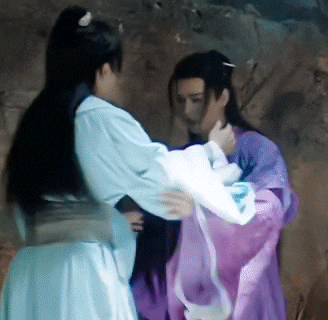
This was where I started word of honor..
#山河令#word of honor#shan he ling#shl#산하령#한방영업짤#짤#I have exactly the same pic more than hundreds#I resisted#and resisted#으아아아아아아아아아#아아아아아아아아아아#크아아아아아아아아아아아#이런데 어떻게 안파?#너무 맛있다#너네 그거 사랑이야#사랑을해라#사랑해해해해애애애애#내가 알게 하란말이야#광총망했으면#광총망해라#wenzhou
9 notes
·
View notes
Text
It's... Beautiful... pardon my rubbish expression 🥲
CROSSOVER!!!

Context:
I think most you already know, but:
>Zhehan (ZZS's actor) wore Elizabeth t-shirt when shooting shl back then
>Elizabeth is Katsura's bff
>Katsura VA is Ishida Akira-san
>And A-Xu in WoH dub Japanese is dubbed by Ishida Akira-san
The best crossover 😌🫶

#word of honor#銀魂#은혼이랑?#산하령이?#山河令#미쳤네#주자서를 카츠라성우가 더빙했구나.. 부럽#우리도 더빙해줬으면 좋겠다#크으으#감동이다 감동#내가 이렇게 메이저를 파고 있다니#1년이나 늦었는데도 떡밥이 넘쳐흘러 아름다워#아름다워#정말 좋아 죽겠네#아아아아아아아아아아아아아아아#크아아아아아아아아아아아
70 notes
·
View notes
Text
周相公可憐則個吧
Zhou darling, Please have some pity on me.
金瓶梅(Qin ping mei) Known as The Plum in the Golden Vase or The Golden Lotus by 笑笑生(Xiao xiao sheng). It's really famous chinese classic novel in 明朝(Ming dynasty). Actually the author can be several people because of the stories various time-era like Shakespeare. It has been prohibited by chinese government for some time because of its explicity but because of that 金瓶梅 has read around chinese culture boundaries. The title shows 3 main heroines in the novel; 潘金蓮(Pan jin lian), 李瓶兒(Li ping'er), and 龐春梅(Pang chun mei).
The main story is the hero; 西門慶(xi men qing) is seducing other's wives and take them as his concubines. It shows lewd and insolent human nature of sexuality. Think why it has been prohibited by main government. I would say it's more like smut, very long and detailed one. The line is a bit different that the actual line is,
娘子可憐小人則個
My darling, please have little bit of pity on me.
西門慶 is telling 潘金蓮 about his horny situation, grabbing her clothes. After than they.. they make love, to be honest It's more like animal mating, more details you may find in the book. 金瓶梅 has translated in many different languages so you may find the translation easily. After this mating or physical aesthetic activity, whatever they had, 潘金蓮 became 西門慶's 5th concubine. Yes 5th. Remember Confucius universe? it's not even a shameful thing at all, I would say rather commom custom.

I don't know if Zhou zishu had read 金瓶梅 or not. His reaction is a bit off isn't it? It's possible he doesn't know what it means with Wen kexing saying things around that it was also his first misfortune to be in this mess, also it is a chance to get to know Zhou zishu better. 으아아아아아아아아아 온객행 이 미친놈ㅋㅋㅋㅋㅋㅋㅋㅋㅋㅋㅋ or it's just me Zhou zishu wouldn't know the meaning and he calling himself 老子. 크아아아아아아아아 쌍방이야 으아아아아아아 감겼네 감겼어 다 넘어갔네에으아아아아아아아아아아아아
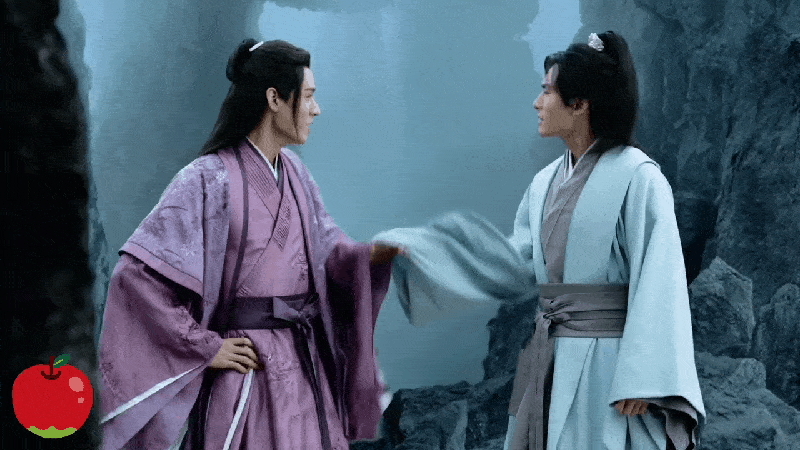
아픈척하는거봨ㅋㅋㅋ요망한 주친놈같으닠ㅋㅋㅋㅋㅋ
#山河令#word of honor#shan he ling#shl#산하령#배움이 짧아서 모르겠어#金瓶梅#금병매#아니..여기서요?#갑자기요?#진짜 미쳤나봐#온객행 이 미친놈#주자서한테 미친놈#주친놈#그 상황에 그런 얘기가 나오네#온객행 플러팅을 멈추지 않아#Wen kexing never stops flirting 😘#크아아아아아아아아아아아#아아아아아아아아아아아아아아아#너무좋아 죽을거 같아#너무 맛있다#wenzhou#사랑을해라#너네 그거 사랑이야#사랑해해해해애애애애#내가 알게 하란말이야#주자서도 감겼네#아니 여기서요?#ep18#ep 18
10 notes
·
View notes
Text
The title and the authour of this poem is unknown. It's from 古詩十九首(gǔ shī shí jiǔ shǒu; 19 old poems). The poem is regared from 漢朝(Han dynasty). Unlike the other old poems most of the poem are lyrics, singing love.
明月何皎皎 照我羅床緯
How bright the full moon! moonlight shines on my bed.
憂愁不能寐 攬衣起徘徊
Sleepless night, roem around holding sleeves.
客行雖云樂 不如早旋歸
Traveling may be pleasant, but would it be better than coming home?
出戶獨徬徨 愁思當告誰
Stray about all alone, who would I tell my worries of you?
引領還入房 淚下沾裳衣
Look faraway in vain, heading back in while tears soak my clothes.
This poem is about a wife worrying her hushand during the night under moonlight. This poem is definitely a lyric.
It changes my understanding of Zhou zishu totally. It was Wen kexing who sings love poems not Zhou zishu!! As how I love his noble moment, he must have known the meaning of that. WHY?? why would you say that??

it's because of Wen kexing's name. How Zhou zishu understood his name with dividing may not be the case here but Wen kexing said one of the old poem from 古詩十九首.
人生天地間 忽如遠行客
Living in this world is like a wanderer who hurries the road.
The common meaning of this poem is just enjoy the drink and live the moment. But some interpretations saying that the speaker of the poem is worrying something. According to the historical aspects it's the ruin of the nation. Think about Wen kexing's situation in ghost valley it's comprehensive.
This is why Zhou zishu saying the love poem❤️ Because it's also from 古詩十九首. Here is Zhou zishu noble moment, I'm sure he must have chosen, picked and selected from the poem and finally he decided to say that. Well they both are under the moonlight. Somehow, Zhou zishu knows Wen kexing leaving. At that moment he says the poem which means he would be waiting for Wen kexing. 으아아아아아아아아烈女怕纏郎!!!!열녀가넘어가버렸어!!!!!!
#山河令#word of honor#shan he ling#shl#산하령#배움이 짧아서 모르겠어#이름하나에 시가 몇개야?#미쳤나봐#주자서 도련님 모먼트#고시십구수#영어에는 量詞가 없고 한국어에서는 그 존재가 희미해져서 뭐라고 말해야할지 모르겠어#주자서도 감겼네#아주 둘이 좋아 죽네..증말..#아주 둘이 죽이 잘맞아#너무좋아 죽을거 같아#ep 25#ep25#너네 그거 사랑이야#쌍방이라고#크아아아아아아아아아아아#망한사랑인줄알았는데 아니었습니다#wenzhou
8 notes
·
View notes
Text


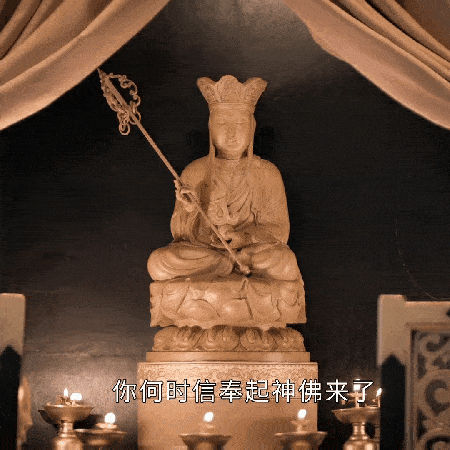
Sanskrit: क्षितिगर्भ, Chinese: 地藏; pinyin: Dìzàng; Japanese: 地蔵; rōmaji: Jizō; Korean: 지장(地藏); romaja: Jijang; Vietnamese: Địa Tạng, Standard Tibetan: ས་ཡི་སྙིང་པོ་ Wylie: sa yi snying po
Kṣitigarbha is known for his vow to take responsibility for the instruction of all beings in the six worlds between the death of Gautama Buddha and the rise of Maitreya, as well as his vow not to achieve Buddhahood until all hells are emptied.

So.. that wasn't a random temple but Han ying's private living quoters. 😭 And he said he find something to wish for.. and he put Kṣitigarbha...
Well Kṣitigarbha is believed to save all people from the hell. He's trying to help the daed to reach Buddhahood. So he might give Zhou zishu salvation. Is that what you want Han ying?? Are you??😭😭
#山河令#word of honor#shan he ling#shl#산하령#zhou zishu#Han ying#韓英#한영사전 아니라구요#과몰입#크아아아아아아아아아아아#주자서가 여럿 홀리고 다니네#주자서가 대죄인이야#아아아아아아아아아아아아아아아#너네 그거 사랑이야#망극하다 망극해#༼;´༎ຶ ༎ຶ`༽
8 notes
·
View notes
Text
螳螂捕蟬 黃雀在後
A mantis preying on a cicada, while a sparrow preying on its back.
This is one of the idiom from 春秋時代(chūn qiū shí dài; Spring and Autumn chinese period in 770 to 403 BC). The story is about 吳王(wú wáng), 夫差(fū chāi) after 吳 had conquered 越(yuè).
夫差 was overweening, killed rotal retainers and generals. 越 had sent 西施(Xī Shī) for his concubine and 夫差 loved her so much didn't do anything but sumptuous feasts. When 越 was preparing for getting their nation back. 吳 retianers asked and begged the king to recover his political sences, he had not listened. 夫差 had son, named 友(Yǒu). One day 友 was passing by 夫差, wet and holding a bow. 夫差 asked him “what happend to you?” then 友 answered,
園中有樹, 其上有蟬. 蟬高居悲鳴飮露, 不知螳螂在其後也. 螳螂委身曲附, 欲取蟬而不顧知黃雀在其傍也. 黃雀延頸欲啄螳螂而不知彈丸在其下也. 此三者皆務欲得其前利而不顧其後之有患也
In the morning when I went to the garden, there was a cicada on the high branch of the tree. At the back of the cicada, there was also a mantis, which tried to prey on. Then a sparrow noticed that mantis as prey, but it seems the mantis hadn't noticed his menace. So I aimed for the sparrow but I hadn't noticed the pond in front. This shows, they are blinded by small gain in front, they have not seen the obvious threat.
Later, 越 invaded 吳, 吳 was defeated. Then 夫差 killed himself. It is also in 莊子 (zhuāng zǐ), he interpreted that the luck calls the wrath and the wrath calls the luck. It is used as people only sees small profit it front when there will be more trouble coming because of that.

To be honest, I don't know which is what Wen kexing intends to whom. How Zhou zishu understood that Wen kexing was the sparrow, while the mantis and the cicada were the 江湖 (jianghu) people. Then who's going to draw the bow? This story keeps coming by Xie wang and Zhao jing as well.

#山河令#word of honor#shan he ling#shl#산하령#배움이 짧아서 모르겠어#당랑규선#ep5#ep 5#초반화에 뭐가 엄청 많네#내가 이걸 다 놓치다니 크흠#매미랑 사마귀 참새 얘기는 계속 나오던데#마지막에 갈왕이 얘기하는것도 그렇고#대체 누가 매미고 누가 사마귀고 누가 참새야#활 쏘는 사람은 또 누군데#우와존잼#크아아아아아아아아아아아
5 notes
·
View notes
Text
人生在世如夢幻泡影
Life as dream and shadow of tide
It's from 金剛般若波羅蜜經(Jīngāng Bōrě-bōluómìduō Jīng ; Diamond Sutra or Vajra Sūtra) shortened as 金剛經 (Jīngāng Jīng). In Asia, it has translated broadly and used commonly without its religious origin. The style of the sutra is a dialogue between Buddha and his diciple, Subhūti(須菩提). General story line is Subhuti asking Buddha, how to live, to practice and to resist temptation of evil. The quoted part is the last saying of Buddha in the 金剛經 which is called Śloka. It can be chanted as a prayer. Sanskrit version and translated in chinese.
tārakā timiraṁ dīpo
māyā-avaśyāya budbudaṁ
supinaṁ vidyud abhraṁ ca
evaṁ draṣṭavyaṁ saṁskṛtam.
一切有爲法 如夢幻泡影 如露亦如電 應作如是觀
(yi qi you wei fa ru meng huan pao ying ru lu yi ru dian ying zuo ru shi guan)
Whatever exists, are all truth,
haze of stars , snow and candle light,
phantasm, morning dew and spume,
dream, lightening nad clouds,
they are all the truth(Tanha).
Through the scripture, 阿耨多羅三藐三菩提(anuttarā samyak-saṃbodhi; A heart towards right enlightenment) which means the outward of a thing like status or notions do not matter to find enlightenment. So Buddha is saying, do not be blineded by outwards, look at its true nature with pure mind. The main point is to have pure mind to see the others.

Wen kexing is saying those to who? I believe he means, don't be distracted by who he is but true himself. Because I think Zhou zishu already see him as a "brother". Wen kexing is reminding that Zhou zishu was not someone who judge people with the surface of them?
Then he said that after a story of his childhood. Any relation between his story and the sloka? Is he saying that to Zhang chengling? Wen kexing has hid truth with mixing fiction. Warning for Zhang chengling? I don't know 😵
#山河令#word of honor#shan he ling#shl#산하령#배움이 짧아서 모르겠어#금강경#金剛般若波羅蜜經#金剛經#아뇩다라삼먁삼보리#대체 누구한테 하는 얘기야#지얘기하면서 사실이랑 거짓 뒤섞어놓고#대체 누구한테 하는 얘긴데#주자서한테 이미 들켰잖아#장설귀로 입놀려서#으아아아아아아아아아#아아아아아아아아아아#크아아아아아아아아아아아#크으으#미쳤네#너무좋아 죽을거 같아#ep 21#ep21#wenzhou
3 notes
·
View notes
Text
幸得君心似我心
Fortunately, your hear is like my heart.
Title is 我住長江頭, I live upstream of 長江(chang jiang) by 李之儀(Li zhi yi). this also had been on 後宮甄嬛傳; Empresses in the Palace. So it's quite famous and you can find the translation easily. The quoted part is,
只願君心似我心,定不負相思意
If your heart is similar to mine, I would never cast aside this heart.
The poet had bad luck in his life, that his wife and offsprings died before him. Then he was demoted to rural district. Then he met a consort, who's family had been destroyed by conspiracy. Because of that she only sung about justice and loyalty. The poet was swayed of her song and fidelity, so he sang this poem to her. But well it's not as beautiful as it sound as the age difference between the poet and consort was like grand father and grand daughter, some of old script guessed she might had been 13~15, when the poet saw her.

What zhou zishu saied,
得君爲友 不枉此生
To have you as a friend is not waste of this life.
Then Wen kexing answers with the poem. It means “if your love is the same as mine, I wound never forget.” The term 君子(junzi) can be translated a load, an admirer or a lover. Because of that quite many poems from old time, had interpreted only in men point of view. It turns out singer of the poems to change the singers point of view as a women, most of the poems sing love. Love is a powerful source of creativity! Even, when they might die, Wen kexing never stop flirting.
#山河令#word of honor#shan he ling#shl#산하령#배움이 짧아서 모르겠어#ep 18#ep18#복산자#아주장강두#아니 여기서요?#온객행 플러팅을 멈추지 않아#Wen kexing never stops flirting 😘#이상황에서 그런얘기가 나온다 또#그걸 또 받아준다 주자서가#주자서야 주자서야#주자서도 감겼네#크아아아아아아아아아아아#너무좋아 죽을거 같아#온객행 이 미친놈#주자서한테 미친놈#주친놈#wenzhou
5 notes
·
View notes
Text
明知不可爲而爲之 明知人心難測而信之
Knowing it's impossible but still act, Knowing it's deceitful, but still having faith
It's from 春秋左氏傳(左傳:zuo zhuan) by 孔子(Kong zi; Confucius). One of his disciples, 子路(Zi lu), were visiting Confucius, then he came back to his town. The gate keeper asked 子路, “where have you been?” He answer, he had visited his Mentor(孔子). Thereupon, the gate keeper said,
是知其不可而爲之者興?
Who, try to do somthing cannot accomplished?
When 孔子 tried to work for the dynasty, he was very disappointed and skeptical of the politics. So, the commoners were saying those things. But the righteousness, for 孔子, was not from otherside, whatever inside of him can be controlled. So he didn't give up, because he believed he would accomplish.
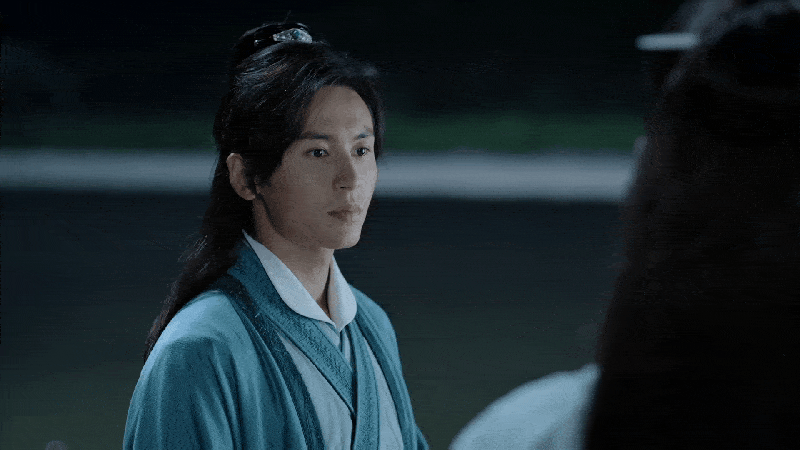
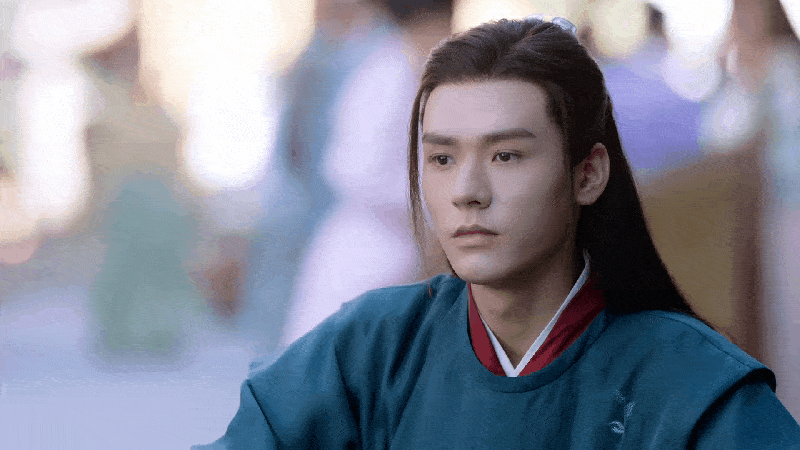
Zhou zishu talked about 孤勇(gu yong; a lone bravery). What he was saying other types of bravey (氣勇,血勇,骨勇,神勇), which I have heard, but 孤勇.. I have never heard from anywhere so it mustn't be from old text.
The quote from 左傳, has meaning that the person believes, it can be accomplished when the other sees differently.
Zhou zishu had faith to 晉王(Qin wang), then Zhou zishu realised Qin wang had been deceiful. I believe Zhou zishu must have been trying very hard to work with Qin wang.

He would have known, long before the last person of Four season house had had gone. Because of this 孤勇, Zhou zishu didn't have much choice than killing himself. He was thought and lived that way and he didn't or couldn't find another way.
Then later, Wen kexing is reminding that he might want to be the person, who are believed when he's deceitful. Because Wen kexing was deceiful.🤭
#山河令#word of honor#shan he ling#shl#zhou zishu#주자서#춘추좌씨전#左傳#孔子#공자새키 죽이러 간다ㅠㅠㅜ#孤勇#배움이 짧아서 모르겠어#만악의 근원이다 공자는#공자 니가 나한테 이러면 안되지#유교망해라#주자서는 결국 진왕사람#그걸 또 부러워한다 온객행이#크아아아아아아아아아아아#너무 맛있다#너무좋아 죽을거 같아#ep 12#ep12
2 notes
·
View notes